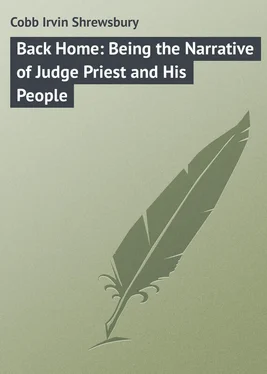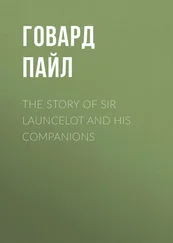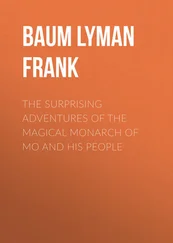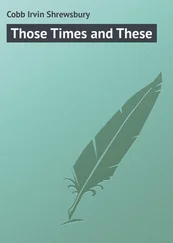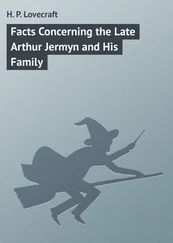Irvin Cobb - Back Home - Being the Narrative of Judge Priest and His People
Здесь есть возможность читать онлайн «Irvin Cobb - Back Home - Being the Narrative of Judge Priest and His People» — ознакомительный отрывок электронной книги совершенно бесплатно, а после прочтения отрывка купить полную версию. В некоторых случаях можно слушать аудио, скачать через торрент в формате fb2 и присутствует краткое содержание. Жанр: foreign_prose, на английском языке. Описание произведения, (предисловие) а так же отзывы посетителей доступны на портале библиотеки ЛибКат.
- Название:Back Home: Being the Narrative of Judge Priest and His People
- Автор:
- Жанр:
- Год:неизвестен
- ISBN:нет данных
- Рейтинг книги:3 / 5. Голосов: 1
-
Избранное:Добавить в избранное
- Отзывы:
-
Ваша оценка:
- 60
- 1
- 2
- 3
- 4
- 5
Back Home: Being the Narrative of Judge Priest and His People: краткое содержание, описание и аннотация
Предлагаем к чтению аннотацию, описание, краткое содержание или предисловие (зависит от того, что написал сам автор книги «Back Home: Being the Narrative of Judge Priest and His People»). Если вы не нашли необходимую информацию о книге — напишите в комментариях, мы постараемся отыскать её.
Back Home: Being the Narrative of Judge Priest and His People — читать онлайн ознакомительный отрывок
Ниже представлен текст книги, разбитый по страницам. Система сохранения места последней прочитанной страницы, позволяет с удобством читать онлайн бесплатно книгу «Back Home: Being the Narrative of Judge Priest and His People», без необходимости каждый раз заново искать на чём Вы остановились. Поставьте закладку, и сможете в любой момент перейти на страницу, на которой закончили чтение.
Интервал:
Закладка:
He walked side by side with his closest personal friend and bitterest political foe, Major Ashcroft, late of the Ninth Michigan Volunteers – walking so close to him that the button of the Loyal Legion in the major’s left-hand lapel almost touched the bronze Southern Cross pinned high up on the right breast of the sergeant’s flaring jacket.
From time to time the sergeant, addressing the comrades ahead of him, would poke the major in the side and call out:
“Boys, I’ve took the first prisoner – this here pizen Yank is my meat!”
And the imperturbable major would invariably retort:
“Yes, and along about dark the prisoner will have to be loading you into a hack and sending you home – the same as he always does.” Thereupon a cackling laugh would run up the double line from its foot to its head.
The local band, up in its coop on the warped gray roof of the grandstand, blared out Dixie, and the crowd cheered louder than ever as the uneven column of old soldiers swung stiffly down the walkway fronting the grandstand and halted at the word – and then, at another word, disbanded and melted away into individuals and groups. Soon the veterans, with their womenfolks, were scattered all over the grounds, elbowing a way through the narrow aisles of Floral Hall to see the oil paintings and the prize cakes and preserves, and the different patterns of home-made rag quilts – Hen-and-Chickens and Lone Star and Log Cabin – or crowding about the showpens where young calves lowed vainly for parental attention and a Berkshire boar, so long of body and so vast of bulk that he only needed to shed his legs to be a captive balloon, was shoving his snout through a crack in his pen and begging for goodies. And in Agricultural Hall were water-melons like green boulders, and stalks of corn fourteen feet long, and saffron blades of prize-winning tobacco, and families of chickens unhappily domiciled in wooden coops. The bray of sideshow barkers, and the squeak of toy balloons, and the barnyard sounds from the tied-up, penned-up farm creatures, went up to the treetops in a medley that drove the birds scurrying over the fence and into the quieter woods. And in every handy spot under a tree basket dinners were spread, and family groups ate cold fried chicken and lemon meringue pie, picnic fashion, upon the grass.
In the middle of this a cracked bugle sounded and there was a rush to the grandstand. Almost instantly its rattling gray boards clamored under the heels of a multitude. About the stall of the one lone bookmaker a small crowd, made up altogether of men, eddied and swirled. There were men in that group, strict church members, who would not touch a playing card or a fiddle – playthings of the devil by the word of their strict orthodoxy; who wouldn’t let their children dance any dance except a square dance or go to any parties except play parties, and some of them had never seen the inside of a theater or a circus tent. But they came each year to the county fair; and if they bet on the horses it was their own private affair.
So, at the blare of that leaky bugle, Floral Hall and the cattlepens were on the moment deserted and lonely. The Berkshire boar returned to his wallow, and a young Jersey bullock, with a warm red coat and a temper of the same shade, was left shaking his head and snorting angrily as he tried vainly to dislodge a blue ribbon that was knotted about one of his short, curving black horns. Had he been a second prizewinner instead of a first, that ribbon would have been a red ribbon and there is no telling what might have happened.
The first race was a half-mile dash for running horses. There were four horses entered for it and three of the four jockeys wore regular jockey outfits, with loose blouses and top boots and long-peaked caps; but the fourth jockey was an imp-black stable boy, wearing a cotton shirt and the ruins of an old pair of pants. The brimless wreck of a straw hat was clamped down tight on his wool like a cup. He be-straddled a sweaty little red gelding named Flitterfoot, and Flitterfoot was the only local entry, and was an added starter, and a forlorn hope in the betting.
While these four running horses were dancing a fretful schottische round at the half-mile post, and the starter, old man Thad Jacobson, was bellowing at the riders and slashing a black-snake whip round the shins of their impatient mounts, a slim black figure wormed a way under the arms and past the short ribs of a few belated betters yet lingering about the bookmaker’s block. This intruder handled himself so deftly and so nimbly as not to jostle by one hair’s breadth the dignity of any white gentleman there present, yet was steadily making progress all the while and in ample time getting down a certain sum of money on Flitterfoot to win at odds.
“Ain’t that your nigger boy Jeff?” inquired Doctor Lake of Judge Priest, as the new comer, still boring deftly, emerged from the group and with a last muttered “Scuse me, boss – please, suh – scuse me!” darted away toward the head of the stretch, where others of his race were draping themselves over the top rail of the fence in black festoons.
“Yes, I suppose ‘tis – probably,” said Judge Priest in that high singsong of his. “That black scoundrel of mine is liable to be everywhere – except when you want him, and then he’s not anywhere. That must be Jeff, I reckin.” And the old judge chuckled indulgently in appreciation of Jeff’s manifold talents.
During the parade of the veterans that day Judge Priest, as commandant of the camp, had led the march just behind the fife and drums and just ahead of the color-bearer carrying the silken flag; and all the way out from town Jeff, his manservant, valet, and guardian, had marched a pace to his right. Jeff’s own private and personal convictions – convictions which no white man would ever know by word of mouth from Jeff anyhow —
were not with the late cause which those elderly men in gray represented. Jeff’s political feelings, if any such he had, would be sure to lean away from them; but it was a chance to march with music – and Jeff had marched, his head up and his feet cutting scallops and double-shuffles in the dust.
Judge Priest’s Jeff was a small, jet-black person, swift in his gait and wise in his generation. He kept his wool cropped close and made the part in it with a razor. By some subtle art of his own he could fall heir to somebody else’s old clothes and, wearing them, make than look newer and better than when they were new. Overcome by the specious wiles of Jeff some white gentleman of his acquaintance would bestow upon him a garment that seemed shabby to the point of open shame and a public scandal. Jeff would retire for a season with a pressing iron and a bottle of cleansing fluid, and presently that garment would come forth, having undergone a glorious resurrection. Seeing it, then, the former proprietor would repent his generosity and wonder what ever possessed him to part with apparel so splendid.
For this special and gala occasion Jim wore a blue-serge coat that had been given to him in consideration of certain acts of office-tending by Attorney Clay Saunders. Attorney Clay Saunders weighed two hundred and fifty pounds If he weighed an ounce, and Jeff would never see one hundred and twenty-five; but the blue serge was draped upon Jeff’s frame with just the fashionable looseness. The sleeves, though a trifle long, hung most beautifully. Jeff’s trousers were of a light and pearly gray, and had been the property originally of Mr. Otter-buck, cashier at the bank, who was built long and rangy; whereas Jeff was distinctly short and ducklike. Yet these same trousers, pressed now until you could have peeled peaches with their creases and turned up at the bottoms to a rakish and sporty length, looked as if they might have been specially coopered to Jeff’s legs by a skilled tailor.
Читать дальшеИнтервал:
Закладка:
Похожие книги на «Back Home: Being the Narrative of Judge Priest and His People»
Представляем Вашему вниманию похожие книги на «Back Home: Being the Narrative of Judge Priest and His People» списком для выбора. Мы отобрали схожую по названию и смыслу литературу в надежде предоставить читателям больше вариантов отыскать новые, интересные, ещё непрочитанные произведения.
Обсуждение, отзывы о книге «Back Home: Being the Narrative of Judge Priest and His People» и просто собственные мнения читателей. Оставьте ваши комментарии, напишите, что Вы думаете о произведении, его смысле или главных героях. Укажите что конкретно понравилось, а что нет, и почему Вы так считаете.
